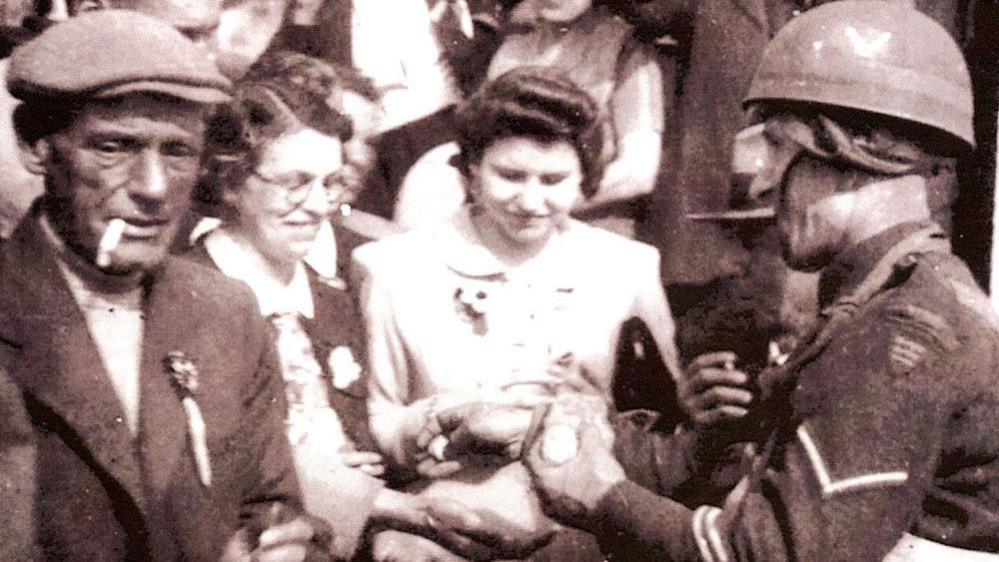WW2 codebreaker still finds secret hard to share
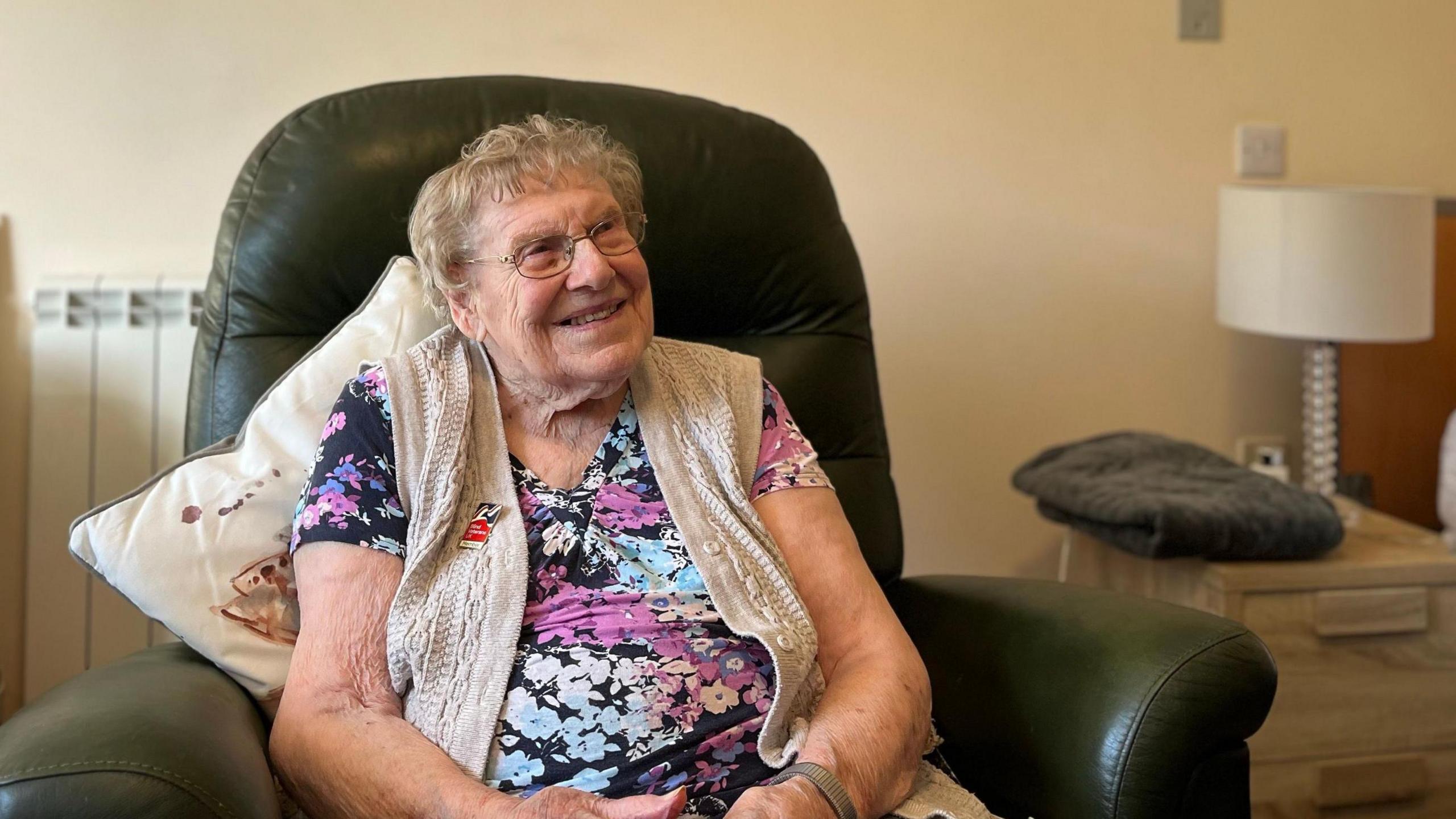
Marjorie Dodsworth was an Enigma codebreaker during World War Two
- Published
Marjorie Dodsworth's parents died without ever knowing the role she played during World War Two.
Mrs Dodsworth has been telling her story to BBC Radio Guernsey ahead of the launch of the Island Memories Project, which aims to record islanders stories for a digital archive in conjunction with Guernsey Museums.
Born Marjorie Hawkins in Reading in 1925, she knew she wanted to join the Royal Navy if war broke out.
But she never expected to be signing the Official Secrets Act and working as an operator of a Bombe, external, a device used to help decipher German Enigma machine encrypted secret messages, at Eastcote, one of codebreaking centre Bletchley Park's outstations.
"They were getting us to do the actual breaking the codes. I don't know how to describe what you do really," she said.
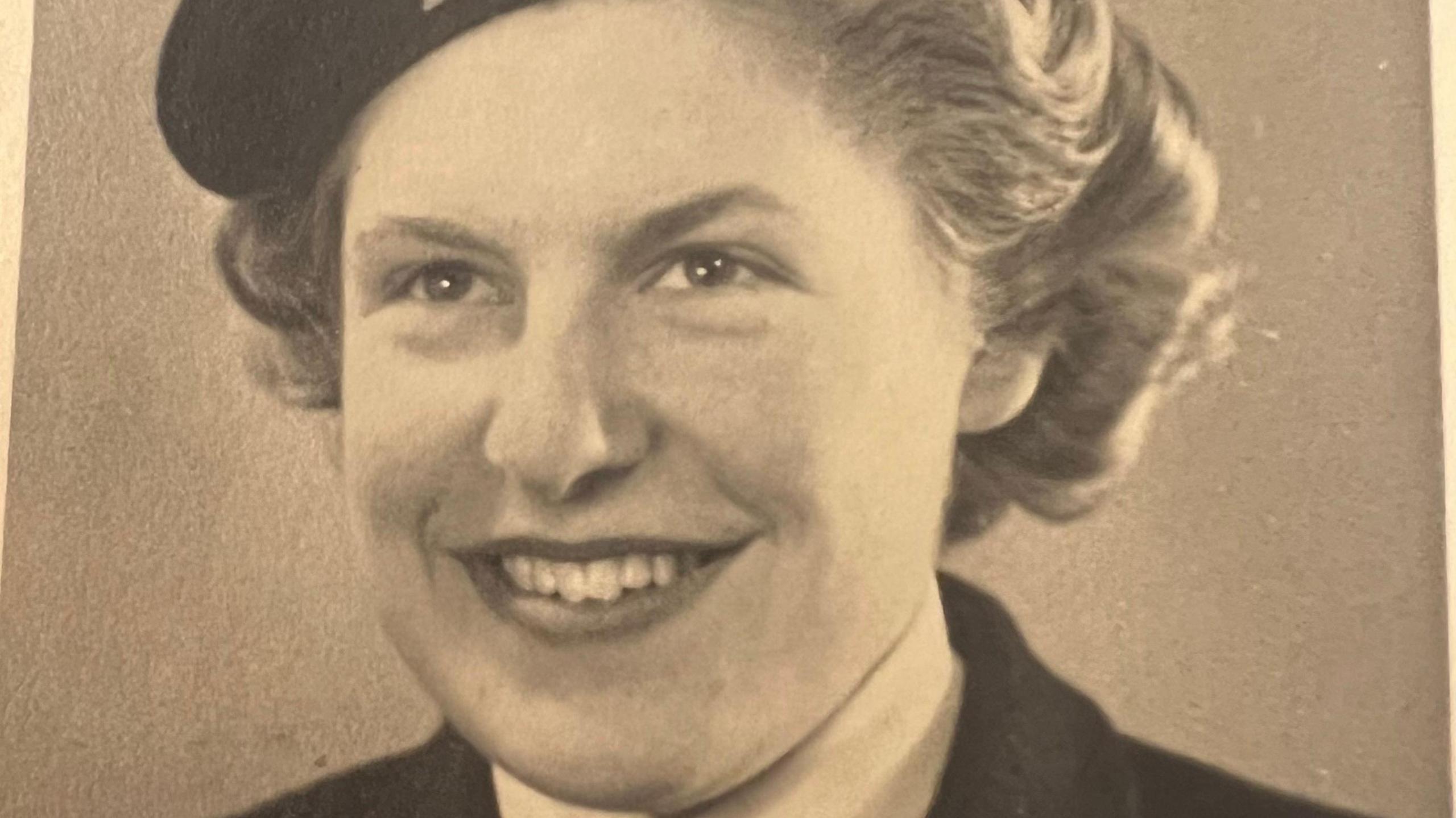
Mrs Dodsworth did eight-hour shifts in a windowless building
The devices designed by Alan Turing helped change the course of the war.
By speeding up the process breaking the day's Enigma setting, it meant staff were able to decode and pass on intelligence quickly with time for it to be acted upon.
Mrs Dodsworth ended up doing eight-hour shifts in a windowless building, working on her machine.
"It wasn't very easy because it was drums which revolved and they had very tiny wires in the back which connected with the machine, and if they stopped it might possibly be a message," she said.
The work eventually went back to Bletchley Park for further decoding.
"We never knew whether we'd actually broken a code," she said.
Despite not knowing the exact details of what had happened, she said it was still a treat to know they had made a difference.
"Churchill said we were the goose that laid the golden eggs," she said.
In 1944, Enigma decrypts gave details of German preparations and plans for reaction to the D-Day invasion.
'You had to do it'
Mrs Dodsworth said she left school without any qualifications so she did not initially understand why she had been chosen for this particular role.
"They told us it was very secret and we had to sign the Official Secrets Act," she said.
"We were told if ever we divulged any part of it we'd be instantly dismissed and, if it was a serious complaint, we'd be shot."
Her parents both died before she was allowed to tell them.
But 50 years to the day she signed the Official Secrets Act, when her obligations under the act expired, she sat her husband and four sons around the dinner table and told them her story.
"It was very hard keeping the secret from my family but you had to do it and that was it," she said.
"I still find it difficult to talk about now."
As for what her parents would have thought?
"They'd be surprised for sure and I think possibly proud," she said.
"I must admit I am proud of what I did."
Follow BBC Guernsey on X, external and Facebook, external. Send your story ideas to channel.islands@bbc.co.uk, external.
Related topics
- Published23 October 2024
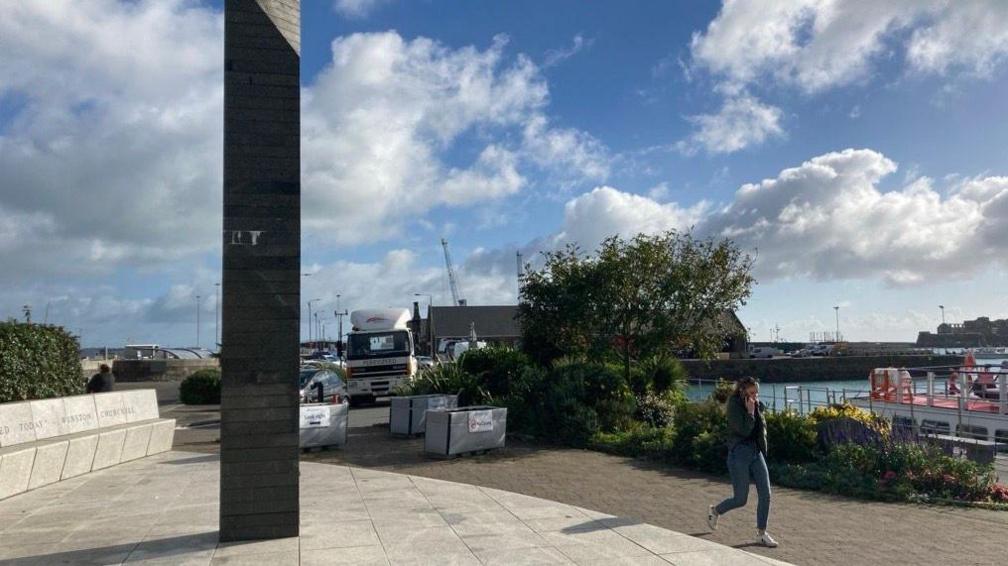
- Published23 June 2018
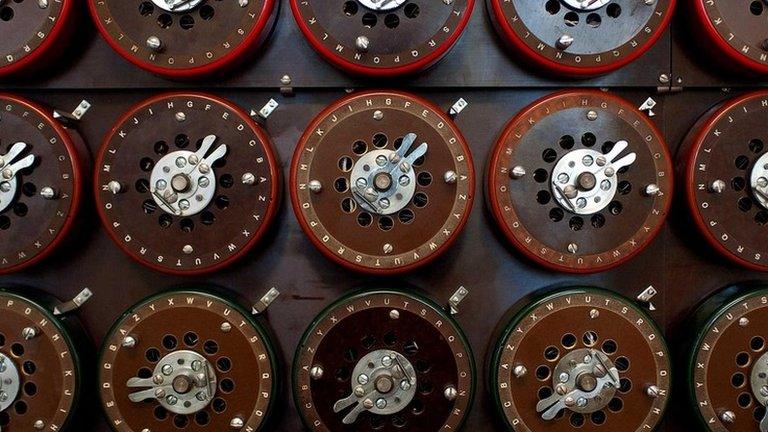
- Published19 June 2012
- Published8 November 2024
